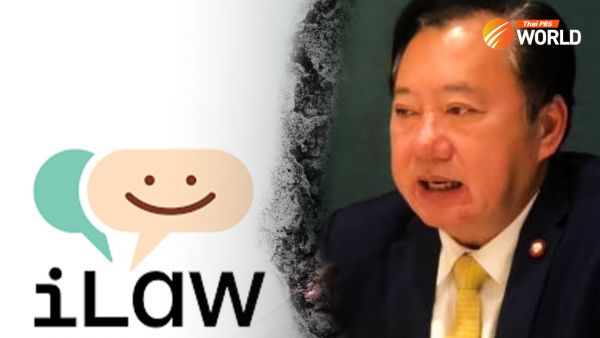OPINION: Why does victim-blaming persist in Thai culture?

If they were being stared at, who’s to blame? Women.
If they were sexually harassed or assaulted, who’s to blame? Also, women.
If their sex tape is leaked without their consent, who’s to blame? Still women.
Women are still blamed and are often expected to take responsibility for gender-based crimes against them, be it sexual harassment in real life or online. The victim-blaming-and-shaming attitude still exists in Thailand and elsewhere due to an existing gender bias against women.
On the brighter side, people nowadays are not afraid to speak out and have come together to protect women from being socially victimised.
-What has happened?-
Thai netizens took to Twitter (X) last week to show sympathy and support for a female Thai artist, known as “Beer the Voice”, after an alleged sex video of her was leaked on social media. Many of them came together to protect the artist, condemning men who harassed her online with sexually inappropriate comments, including women who were curious to watch a snippet of it.
Netizens said that people should never objectify nor sexually harass the artist, even though she is known to have a sexy image, and people should always bear in mind that sharing the leaked video “for fun” will add to the trauma and suffering of a victim.
The online conversation has pushed the hashtag as the top-trending topic on Twitter (X) for a few days. Moreover, netizens and fellow celebrities took to the artist’s Instagram to provide their support and encouragement in light of the incident.
The artist has eventually apologised for the leaked video, which she said, came from one of her former boyfriends. She also explained that she used to believe that filming sex videos is an individual preference and that both her and her ex had consented at the time. There were, however, also shots where she did not know that she was being filmed.
The artist also lamented that, if she could go back in time, she would have asked him to delete all of the videos, adding that just because someone agrees to be filmed does not mean that they agree to have their videos published on social media.
Within the same post, she did not forget to question Thai social norms, asking why society still condemns the victim.
“Why is it always the victim who is ostracised by society? Why is it so easy to ruin someone’s life on the Internet? Why do most people still enjoy such things without considering the pain that victims have to go through? And most of all, why are perpetrators still being praised for their wrongdoings?”
-Why the blame?-
“Though I am not surprised that most of these rude comments came from men, rude comments coming from women made me realise that the world is not evil as such, it’s humans,” the artist complained in the same post. “This is 2023, but why is it always men that “gain” something and women that “lose” something when it comes to sexual relationships? Or, is it because society has set it like this, so women always have to lose whenever there’s an incident like this?”
Sadly, society has always objectified women’s bodies, as if it is something that men can always make fun of. For the case of “Beer”, when people are reminded of her name, most of them think of her sexiness, rather than her singing. Not many people are aware of her musical talent or how sweet her voice is.
In fact, women’s bodies have long been objectified in mass media, in films, magazines and the list goes on. Especially in the old days, when people are way too familiar with gossip tabloids publishing stories of female celebrities showing off their cleavage at red carpet events, replicating the male gaze in the Thai media and society as a whole. When readers are used to seeing such content, they think it is normal to comment intrusively about women’s bodies. At the same time, whenever women are sexually harassed, their choice of clothing is the first thing that they are blamed for.
“No one has the right to harass me because of the way I dress,” the female artist said at one point during her previous interview with The Matter, which resurfaced on social media in light of the controversy.
At the same time, women of conservative Thai upbringing are raised to uphold the value of being “ladylike” – from dressing modestly, having a humble and sweet manner and, most importantly, to “reserve” themselves from mingling around men and not engaging in premarital sex.
For this reason, Thai women have always been told not to approach men first, unlike men, who can hit on as many women as they wish. This is heavily rooted in Thai history, which often emphasises the patriarchal belief that men can have a number of wives and concubines, while women are restricted to only one husband and one marriage.
As a result, women who are in more than one relationship are devalued by society as unfaithful or as promiscuous as prostitutes. In other words, women encounter much contempt in such relationships when compared to men. Even worse, if a woman fall victims to sexual assault or commits act of infidelity, their reputation will be tarnished for the rest of their lives, even if they are only accused.
All of this allows Thai society to continue stigmatising and blaming the victims, as if they are the main cause of the problem, while it barely punishes men for objectifying women, but continues to make excuses for men’s sexual desires.
-“Revenge porn” and the Thai law-
When it comes to sex videos, especially “revenge porn”, women are still undeniably targets of stigmatisation, including celebrities. Considering this, these deeply personal videos are often used to blackmail women, because it’s the only way to cause them embarrassment and ruin their reputation.
In fact, filming sexual acts is a huge no-no, regardless of whether it’s filmed with or without consent. If it does get leaked, however, the leaker is the one who needs to be punished. Those who share the video can also end up in legal trouble.
According to Section 14 (4) of the Computer Crime Act, whoever uploads pornography to a platform that is accessible to the public is subject to five years in prison and/or a fine of no more than 100,000 baht. Those who share such information online will receive the same punishment, under Section 14 (5) of the Computer Crime Act.
Meanwhile, according to Section 326 of the Criminal Code, whoever defames the other person to ruin their reputation or to hold them up for ridicule, will be subject to one year in prison and/or a fine of no more than 20,000 baht.
At the same time, according to Section 338 of the Criminal Code, whoever threatens to expose a secret or threatens to abuse another person in order for that person to submit and to do things for the perpetrator’s benefit will be subject to up to 10 years in prison and/or a fine between 20,000-200,000 baht.
Even with that said, the Thai law may not bring justice to all cases of blackmail or revenge porn. Regardless, victims of such crimes are advised to collect their evidence, such as the videos that were leaked and shared online, including their chat history or voice recording of the blackmail threats when they file a report with the police.
-Nobody deserves to be a victim-
Though attitudes seem difficult to change, things are slowly changing for the better, thanks to a number of social movements which have enlightened and encouraged people to break the systemic oppression of Thai women.
The amount of support for the artist on this issue is also phenomenal. This suggests that people, especially of the new generation, are becoming more aware of the problem and they now understand that protecting the victims is what they should be doing. What is also vital is knowing how to take legal action against online perpetrators, which would be a great weapon in protecting themselves from online abuse and harassment.
“Those who leaked the video are the ones who are supposed to be condemned, not the victims,” the artist stated in a separate Instagram story, while expressing her gratitude to her fans who came out to support her and took time to report the videos.
“Don’t make this society even more distorted. Nobody deserves to be a victim, regardless of whether you are male or female.”
By Nad Bunnag, Thai PBS World






